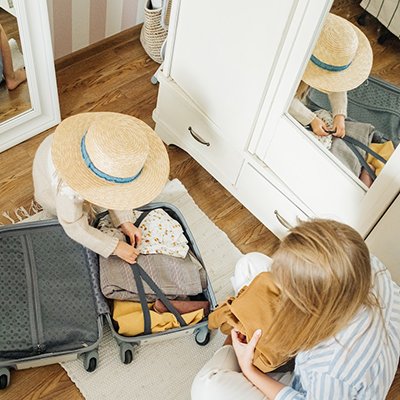6 Reminders On Staying Healthy When Travelling
One of the most common questions that I get from people is how they can avoid becoming sick when they travel. This often leads to other questions such as "What happens when I get sick overseas" or "Do I really need this vaccine that they are prescribing?” If you want to stay healthy, the important part is actively combating the risk factors that make you sick. These are a few suggestions that I believe you should take seriously.
1 Remember Your Vaccinations
Be aware when it comes to vaccinations, there is no one-size fits all response that can answer all the questions and concerns. Many people don't need vaccinations for every trip, and it is more often than not a very individual circumstance. What country or region are you visiting, what vaccinations do you have already? How long are you going to be traveling for? What are you going to be doing, and what is your own personal medical history? Go and speak to a medical professional, and one that is experienced in providing advice for travellers.
 It is also fairly important to understand the differences between recommended vaccinations (which may be specific to a given destination) and the required vaccinations for the destinations you are traveling to. Commonly recommended vaccinations include typhus, cholera, Japanese encephalitis, rabies, or hepatitis A. Required vaccinations generally refer to polio, typhus, and yellow fever. Often there will be a requirement to provide proof of vaccinations before entering the country.
It is also fairly important to understand the differences between recommended vaccinations (which may be specific to a given destination) and the required vaccinations for the destinations you are traveling to. Commonly recommended vaccinations include typhus, cholera, Japanese encephalitis, rabies, or hepatitis A. Required vaccinations generally refer to polio, typhus, and yellow fever. Often there will be a requirement to provide proof of vaccinations before entering the country.
2 Avoid The Mosquitoes
Any traveler is going to regard mosquito bites as an absolute nightmare. The itchy, painful welts might annoy you at best, or cause a variety of diseases at worst. If you are in area where mosquito bites can be dangerous, you may even want to consider sleeping under permethrin-coated nets.

You also want to use anti-mosquito spray and apply liberally. Even though some people prefer natural alternatives, these are not as effective (and sometimes found to be entirely ineffective in studies).
3 Stay Active

One of the best ways to fight off unwanted infections is by making sure that you get enough exercise. The benefits of exercise for our immune system are well documented and well known. It strengthens our immune system and improves our overall health. This means that we are far less susceptible to illness, and if we do get sick, our bodies are far better at fighting off the infection.
4 Drink Bottled Water
If you are traveling in an area where the sanitation is not great or you just cannot be sure about the purity of the water, it might be a better idea to avoid the local tap water altogether. This means that you are going to have to resort to using bottled water.

Even if you find that the locals are able to drink the tap water just fine, it does not mean that you can. Our bodies might not have the same bacteria in our stomach that can help protect us from getting sick. If you want to be sure, avoid local water altogether - and yes, that includes a few ice cubes with your soda.
You might also be interested in How To Stay Hydrated on Long Haul Flights.
5 Keep Your Hands Clean
Even though it sounds basic, it is incredibly important to remember that you clean your hands regularly. When it comes to infection control, keeping hands clean is considered one of the most important factors. You can drastically reduce the odds of MRSA, the norovirus, flu, gastroenteritis, food poisoning, vomiting and or diarrhea just by being conscious of hand hygiene.

Washing is good and even better you should carry a bottle of hand sanitizer, not a replacement for water and soap but a great addition and back up if the water quality is questionable. Whenever you can, make sure that you wash your hands with warm water for at least 30 seconds after leaving the washroom or before eating.
6 Always Be Safe
Keep in mind that these are ONLY general and the very basics of travel health tips. Being wary of your surroundings, being careful how you eat and being cautious in general about the environment you are in will all go a long way to keeping you healthier. We should all get out of the box and enjoy the experience that travelling brings, and a few little precautions with go along way.
And of course if you have personal health needs, medically treated conditions or have significant allergies always - and we mean ALWAYS - consult your doctor before travelling, particularly to countries or regions where hygiene is unclear, diseases are higher and access to medicines are questionable.
For more health tips when travelling why not try 5 Ways To Stay Fit When Travelling and Healthy Business Trip Eating.
Bradley McGowan is a US based freelance writer, extensive traveller and a regular contributor to The Wise Traveller.















